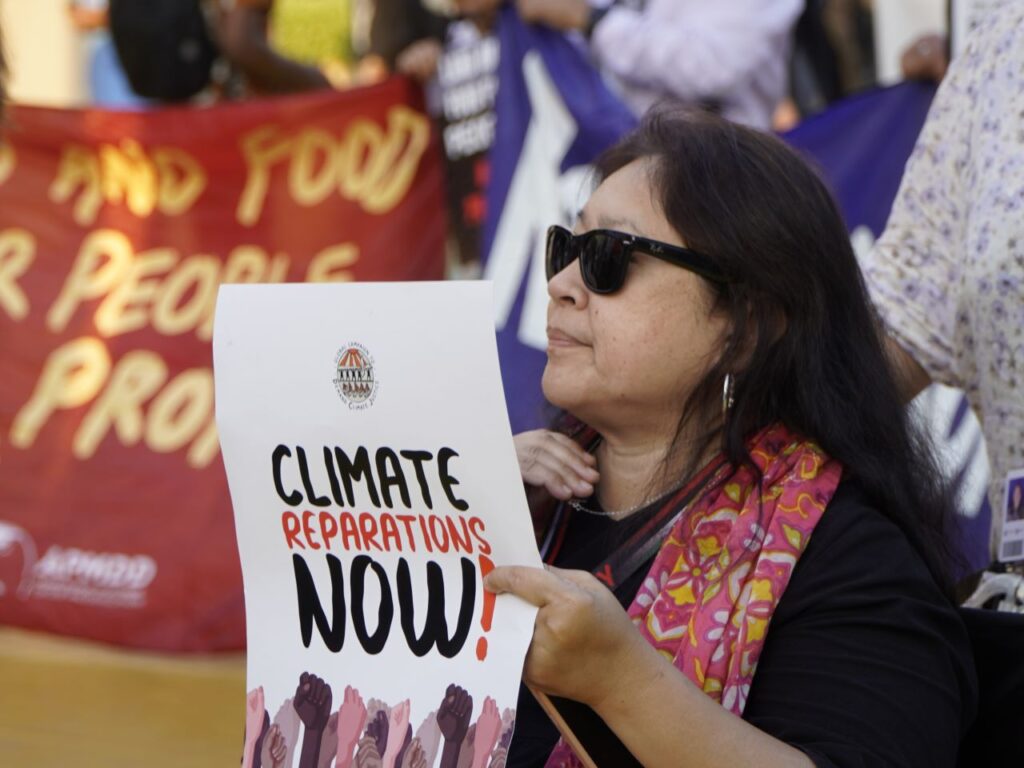COP28 protestor compares climate activism to Filipino’s fight against the military dictatorship that left her husband dead
Flying over the blue skies of the oil-rich United Arab Emirates, I knew the fate of poorer countries and the world remained grey, even after COP28. On the paved floors of the pavilions in Dubai, the protests teemed with anger.
- 7 months ago
January 13, 2024
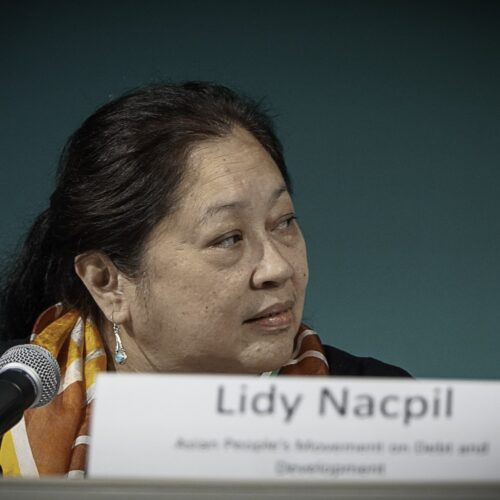
MANILA, Philippines ꟷ Dressed in vibrant colors holding placards with various inscriptions, over 2,000 indigenous people sang and chanted at COP28 in Dubai. [COP28 gathered government leaders from around the world at the twenty-eighth annual United Nations climate meeting to discuss and prepare for future climate change from November 30 to December 12, 2023.]
Due to the presence of high-profile and powerful leaders, we waited for three days before the United Arab Emirates permitted us to protest. Even then, Dubai authorities restricted us significantly. Despite the protestors’ creative efforts to express our frustration, we felt stifled. For decades, these global leaders have determined the fate of the world through stalled climate negotiations.
I believe they are the reason we must gather. Their power to determine the fate of billions of people reminds me of the Philippines’ military dictatorship that sealed the fate of my first husband Lean Alejandro, leading to his tragic death in 1987. Decades later, I continue to protest, but not just at home. Today, I confront leaders around the globe.
Read more environmental stories and news from the Philippines at Orato World Media.
Climate activism is a fight between the poor and the rich and powerful, it takes guts
In honor of the 2023 Global Day of Action, we marched into the streets of Dubai with a sense of solidarity, our spirits high. As similar gatherings took place around the world, we knew we needed to be as loud as possible. This is how we challenge the global system of corporations, governments, and media which control the narrative on climate change.
In the same way my family faced off against the military dictatorship in the Philippines so many years ago, climate activism confronts systems of inequality. Rich and developed nations produce excessive emissions and consider profits over people, while poorer nations suffer. Presenting arguments and debating policy remain critical, but political pressure can only grow through massive protests.
Flying over the blue skies of the oil-rich United Arab Emirates, I knew the fate of poorer countries and the world remained grey, even after COP28. On the paved floors of the pavilions in Dubai, the protests teemed with anger. We made enough noise to attract the media, but it was not sufficient to upset power relations.
As the conference neared its end and we prepared to leave our hotels for home, we eagerly awaited news from world leaders. Then, just before we boarded our airplanes, our phones buzzed. The public announcements from COP28 left us shocked and dumbfounded. Loopholes in commitments and plays on words fell far short of what the world needs. It felt worse than we anticipated.
My heart sank as the U.S. and many rich countries opposed, evaded, and avoided explicit language regarding their obligations in the climate convention. Failures to properly address fossil fuels, carbon offsets, carbon capture, and greenhouse gases – to name a few – continue to put our planet in peril.
I returned from COP28 feeling downcast, seeing the parallels from a lifetime of activism
As my flight descended into Quezon City, I looked at the landscape through my little window. Climate change has dealt my people a heavy blow. Rising sea levels, droughts, floods, loss of biodiversity, and food insecurity continue to diminish our GDP. We fight, and in the coming years, I intend to push harder until the planet is protected and we have equitable, just use of natural resources. Time ticks and waits for no one.
As my mind wanders to the challenges we face, I often reflect on the similarities between climate activism and my family’s fight against the dictatorship in the Philippines. Our historical experience serves as a warning. My journey began as a child.
One evening, around 7:15 p.m., my family and I heard an announcement over Filipino radio. President Ferdinand Marcos imposed martial law. The atmosphere grew immediately tense and extended into the streets. Economic hardship angered the Filipino people and Marcos used martial law to tamper escalating protests. At 12 years old, the educational system shut down on what was to be my first day of high school.
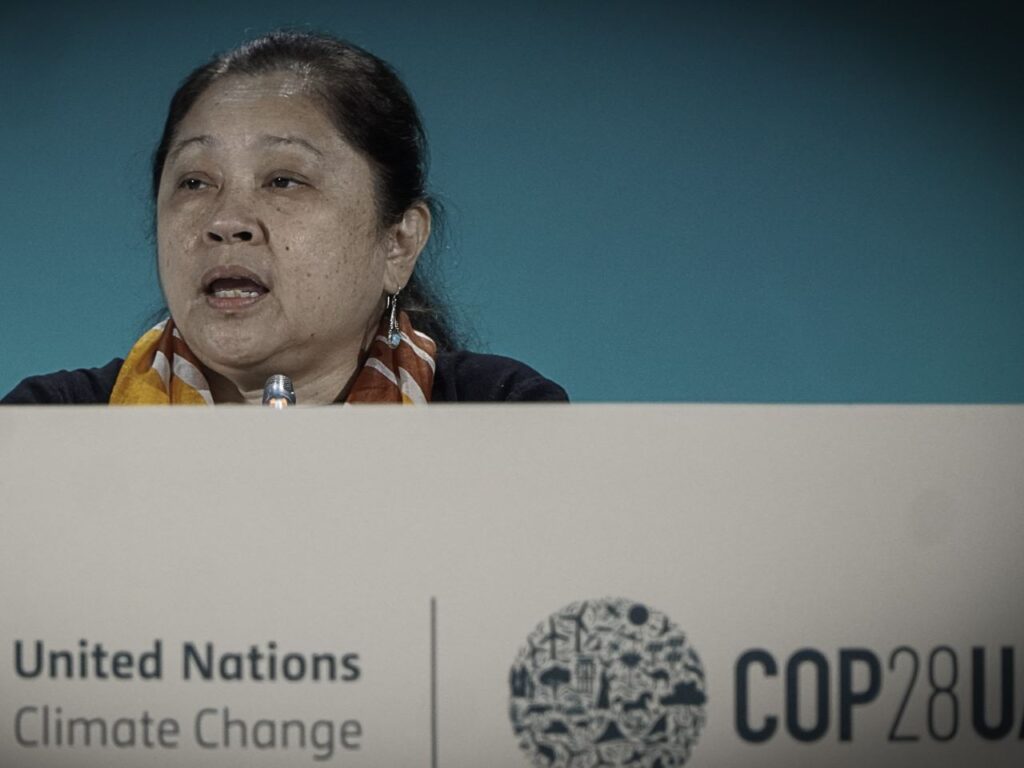
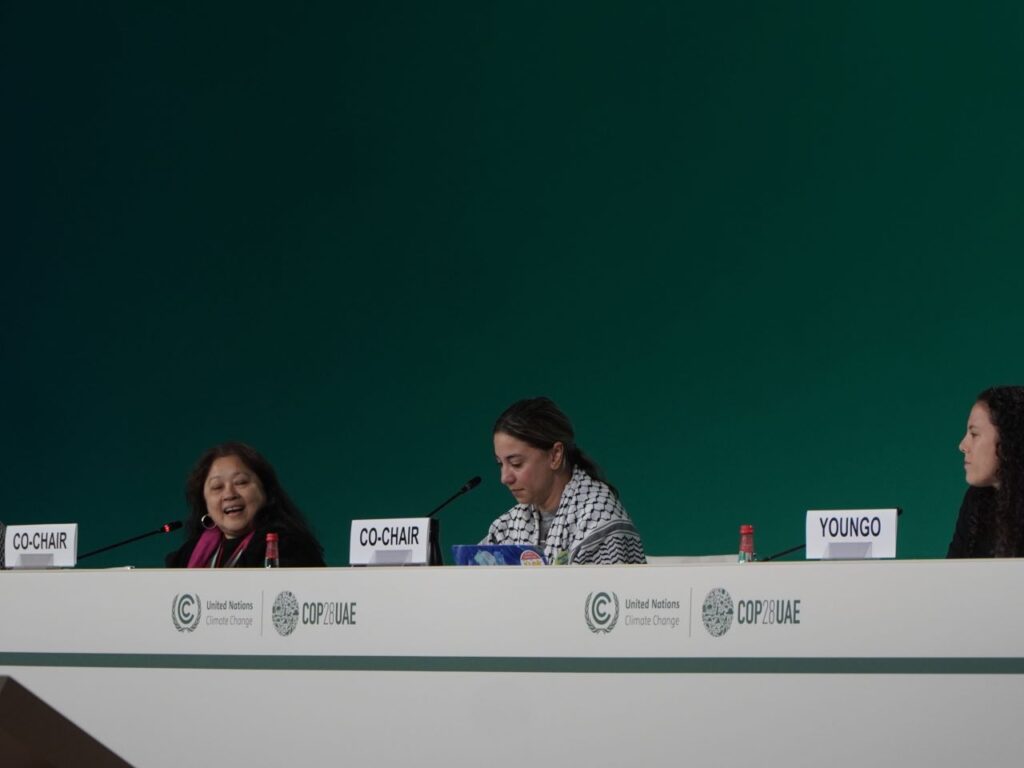
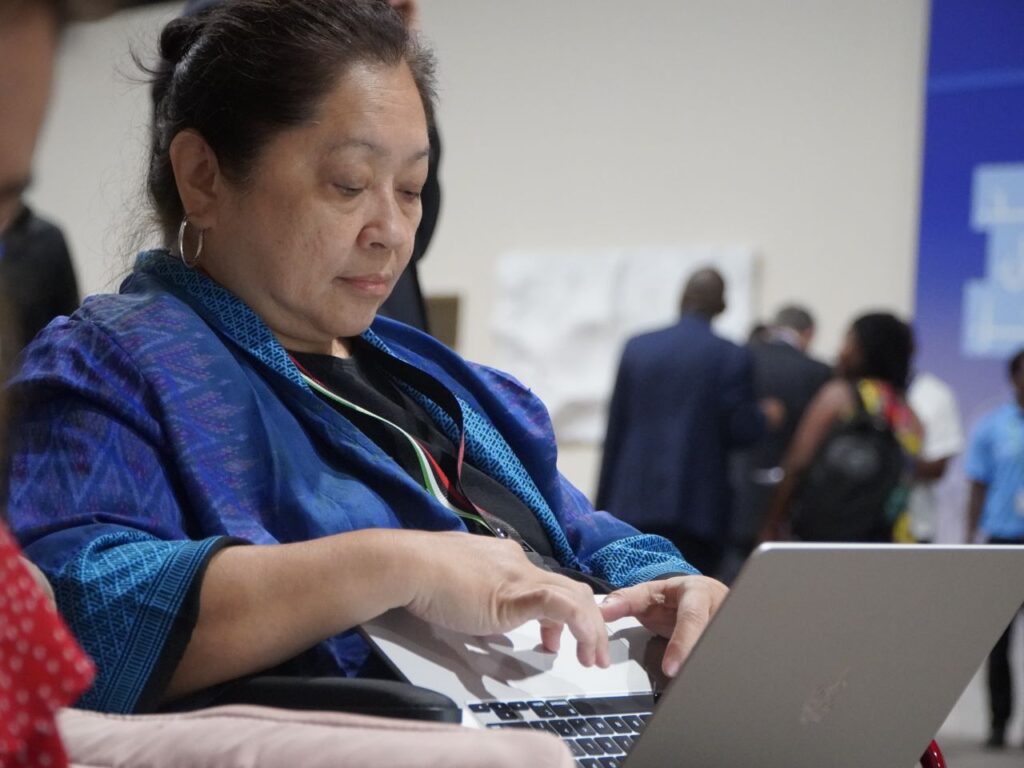
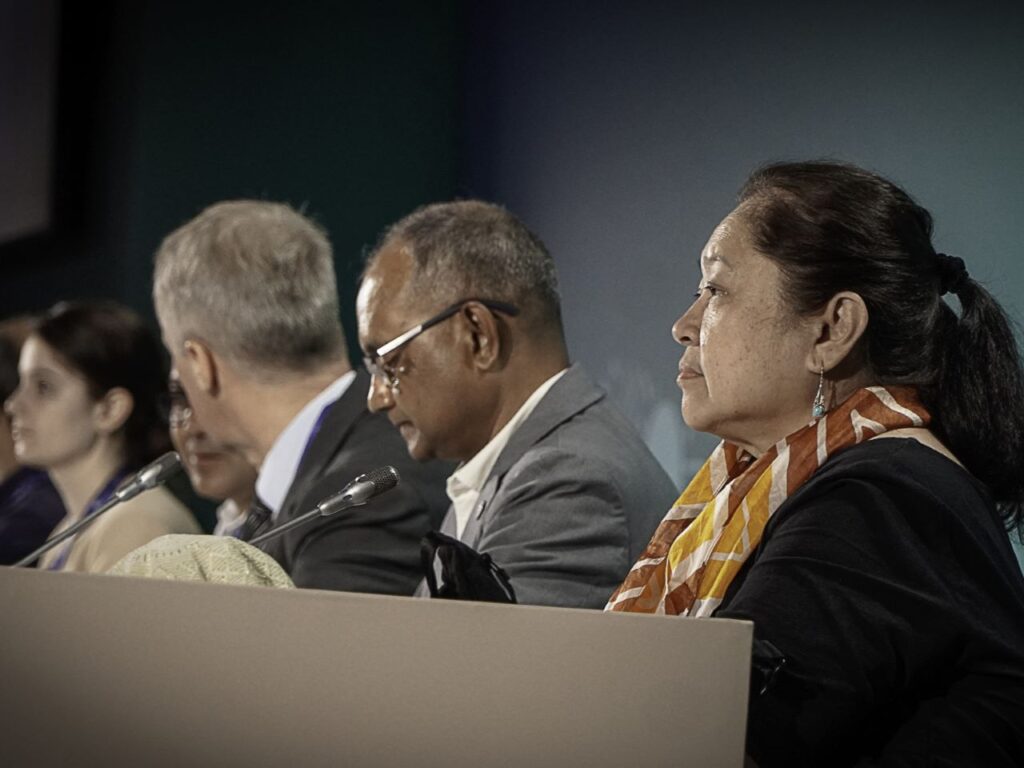
A palpable fear of being arrested left people talking in hushed tones. When we finally returned to school, teachers and pastors helped us comprehend the magnitude of the dictatorship. This planted the seeds of my activism. By college, I dropped out of the medical program to the disappointment of my parents. I needed to focus on serving people another way. In my junior year, I became a full-time activist.
By then, the dictatorship banned the congregation of more than three people so organizing went underground. I watched as those affiliated with the dictatorship became extremely rich, while regular people struggled to obtain daily rations. In anger, we organized to confront human rights violation and economic issues.
In the midst of the military dictatorship, I married my husband Lean
Facing the Philippines’ military dictatorship required courage, and our churches encouraged us to tackle injustice. People felt drained and ready to push back, but it required caution. For some reason, cats increasingly roamed Filipino streets at that time. So, we attached messages to their tails to communicate more broadly. We also posted on public toilets.
As the people became braver, noise grew in the neighborhoods. One of my duties was to spread the word about when to make noise. Emanating from random houses and windows, the authorities struggled to identify the source. Some days, I hurriedly distributed flyers to vendors, hawkers, and shopkeepers. When the police approached, I turned on my heels and fled, disappearing into the streets. Without the benefit of social media, the authorities began quietly arresting people.
In time, I helped organize protests by labor groups and unions. I knew I had two options: stop or lay down my life for the cause. I carry that mindset to this day. As an activist, I live for today, because the future is never promised. My husband Lean knew this all too well.
A prominent leader in the movement, military eyes often fell on Lean. Married during the height of the dictatorship, we felt united in love and war. Yet, I never imagined our daughter would lose her father at six months of age. On the day before the anniversary of the declaration of martial law, Lean left the office for a press conference, and I stayed behind. Little did I know that would be our last goodbye.
At the hospital morgue, they showed me my husband’s body
On that fateful day, Lean and his colleagues left the press conference by car. Waiting for our office gate to open, a vehicle behind them opened fire. News spread fast and my brother-in-law rushed to my home to find me, but I was stuck in traffic. When I got there, my baby’s caregiver met me at the gate holding my daughter. She looked disoriented. “Your husband was ambushed,” she said.
I felt my heartbeat quicken as I thought, “He could still be alive.” Then she blurted out the words that haunt me to this day: “Lean is dead.” My relatives next door rushed over as I began to collapse. I went to the entrance of our office and saw blood everywhere.
At the hospital morgue, they showed me Lean’s body. They blew off half his face – the same tactic used on three other colleagues. I moved my eyes to the part of his body that remained intact, unable to bear the sight of it. Advisors suggested I go into hiding but I refused. The media waited outside to hear my reaction and I would not give in to the government’s scare tactics.
In six months, the dictatorship killed 40 people. Marcos’ reign of terror left thousands dead, incarcerated, tortured, or disappeared. The special military operation targeted political leaders, lawyers, and even journalists. I had support, but many did not. I knew women who lost four sons to the struggle, and children who lost both parents.
By the time she turned three, I had to explain death to my daughter. She struggled to understand why her friends had fathers and she did not. While my fight today may be different, it is still for the future of life on this planet. We only have a few years to make the changes necessary to keep warming below 1.5 degrees. Whether or not we do it depends on the leaders who gathered at COP28.

